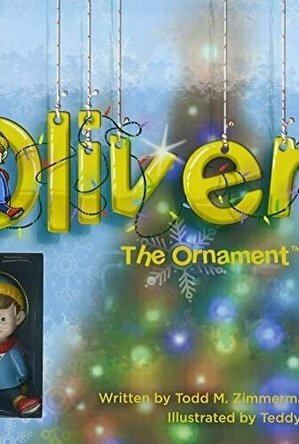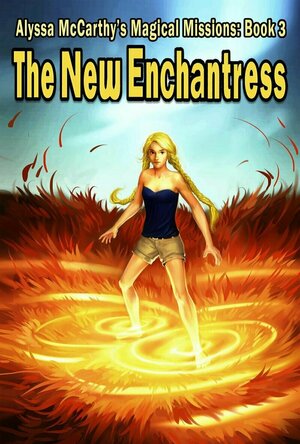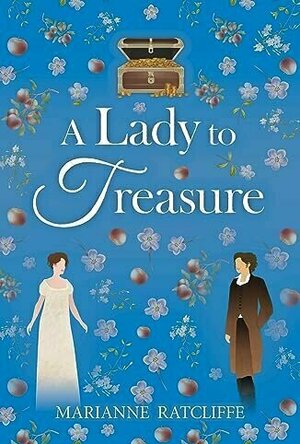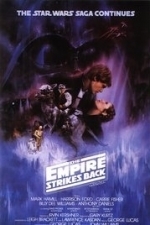Search
Search results
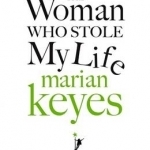
The Woman Who Stole My Life
Book
Ever wish you could trade your life in for a better one? The Woman Who Stole My Life is a story full...
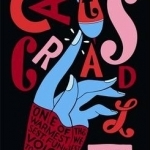
Cat's Cradle
Kurt Vonnegut and Benjamin Kunkel
Book
Kurt Vonnegut's Cat's Cradle is an irreverent and highly entertaining fantasy about the playful...
TravelersWife4Life (31 KP) rated Oliver the Ornament Boxed Gift Set in Books
Feb 24, 2021
<i>Oliver the Ornament </i>touched me in ways I cannot even explain. From the feel of the paper to the colorful illustration, to the thoughtful words. This book pulls you in and stays with you long after you have read it. Todd M. Zimmermann did a phenomenal job with the ideas he conveys in this book and I know it will be one I pass down for many generations to come.
When I first picked up <i>Oliver the Ornament </i> to read, I expected just another book about Christmas. What I got was so much more. Oliver pulled me into his story with his friends and family so much so that by the time I was done I could not stop thinking about my own cherished Christmas ornament memories. The story was easy to read, although more of a 7+ age range in terms of page length, but so engaging and colorful. I loved the page layouts and enjoyed the twists the author/illustrator used to interactively engage with the audience. The themes of always having something positive to say to others, the consequences of bullying, and remembering to hold on to memories no matter how small they may seem combined made this an endearing story. I also am thankful for the author's thoughtfulness in providing a place to write my own ornament stories in the back of the book. But I cannot forget one of the most important interactive aspects of the story, Oliver the ornament himself! He is well made, heavy-duty, and when I look at my tree now, I am reminded that <i>“Every Ornament Tells A Story”</i>.
This is one of my favorite Christmas stories ever as it encourages remembrance, communication between parents and their kids, and the themes of forgiveness, dealing with bullying, and the art of storytelling. I <b>HIGHLY</b> recommend this book for any age to read and enjoy. 5 out of 5 stars.
*I volunteered to read this book in return for my honest feedback. The thoughts and opinions expressed within are my own.
When I first picked up <i>Oliver the Ornament </i> to read, I expected just another book about Christmas. What I got was so much more. Oliver pulled me into his story with his friends and family so much so that by the time I was done I could not stop thinking about my own cherished Christmas ornament memories. The story was easy to read, although more of a 7+ age range in terms of page length, but so engaging and colorful. I loved the page layouts and enjoyed the twists the author/illustrator used to interactively engage with the audience. The themes of always having something positive to say to others, the consequences of bullying, and remembering to hold on to memories no matter how small they may seem combined made this an endearing story. I also am thankful for the author's thoughtfulness in providing a place to write my own ornament stories in the back of the book. But I cannot forget one of the most important interactive aspects of the story, Oliver the ornament himself! He is well made, heavy-duty, and when I look at my tree now, I am reminded that <i>“Every Ornament Tells A Story”</i>.
This is one of my favorite Christmas stories ever as it encourages remembrance, communication between parents and their kids, and the themes of forgiveness, dealing with bullying, and the art of storytelling. I <b>HIGHLY</b> recommend this book for any age to read and enjoy. 5 out of 5 stars.
*I volunteered to read this book in return for my honest feedback. The thoughts and opinions expressed within are my own.
Lindsay (1793 KP) rated The New Enchantress (Alyssa McCarthy's Magical Missions #3) in Books
Jun 5, 2021
Suppose you're looking for a good fantasy or girl hero for your middle-grade children. This book "The New Enchantress" is a good one to have. It is about a girl named Alyssa who gets caught with lasting powers that she can not lose.
The first two books are must-reads and introduce us to Alyssa and her adventures. This book is the third in the series and continues Alyssa's journey with her newfound powers. She seems to signify hexing with uncontrollable forces.
Will Alyssa learn lessons and find a way to figure out how to control her newfound powers? Simon tells her that she will need to learn how to control her emotions and her magic promo. Or she will be enslaved to Boo Champ Cory. Will she and her friends learn the lesson they need to know. Will their friendship end?
Alyssa occurs put to the test. How will the magical mission do and take for Alyssa to succeed? Or will Alyssa start to forget her loved one and never remember? Boo Champ Cory and allies seem to have a plan, but will it work?
The plot gets more interesting once the twist and turns start to happen. When chaos strikes, will Alyssa and her allies come out on top, or will they not. This book is excellent for teens and girls alike. There is some trouble that you will be hoping for Alyssa to figure out her problems but will see in time. Will she beat her enemies, or will she not.
The story starts slow, but it gets more entertaining as it goes. My rating remains based on that which is a 4.5 stars (Moons) rating. There are several twists and turns and somewhat starts at the beginning. I do wonder what will happen and if the author will add another book. This series is good to have on your teen bookshelves or middle-grade child or children bookshelves. It does seem to deal with what some middle grades need to deal with friends and even their own emotions and feelings.
The first two books are must-reads and introduce us to Alyssa and her adventures. This book is the third in the series and continues Alyssa's journey with her newfound powers. She seems to signify hexing with uncontrollable forces.
Will Alyssa learn lessons and find a way to figure out how to control her newfound powers? Simon tells her that she will need to learn how to control her emotions and her magic promo. Or she will be enslaved to Boo Champ Cory. Will she and her friends learn the lesson they need to know. Will their friendship end?
Alyssa occurs put to the test. How will the magical mission do and take for Alyssa to succeed? Or will Alyssa start to forget her loved one and never remember? Boo Champ Cory and allies seem to have a plan, but will it work?
The plot gets more interesting once the twist and turns start to happen. When chaos strikes, will Alyssa and her allies come out on top, or will they not. This book is excellent for teens and girls alike. There is some trouble that you will be hoping for Alyssa to figure out her problems but will see in time. Will she beat her enemies, or will she not.
The story starts slow, but it gets more entertaining as it goes. My rating remains based on that which is a 4.5 stars (Moons) rating. There are several twists and turns and somewhat starts at the beginning. I do wonder what will happen and if the author will add another book. This series is good to have on your teen bookshelves or middle-grade child or children bookshelves. It does seem to deal with what some middle grades need to deal with friends and even their own emotions and feelings.
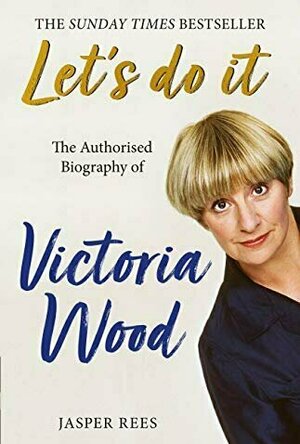
Let's do it -The Authorised Biography of Victoria Wood
Book
THE SUNDAY TIMES BESTSELLER 'I was born with a warped sense of humour and when I was carried home...
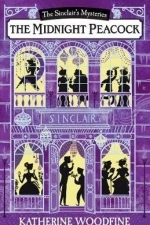
The Midnight Peacock: The Sinclair's Mysteries
Book
A fast-paced historical mystery adventure for readers aged 9+ years, with gorgeous Edwardian period...
young adult crime
Debbiereadsbook (1650 KP) rated Renovated (Chance Brothers #1) in Books
Sep 12, 2021
Im invested in these people, and this is only book one!
Independent reviewer for Archaeolibrarian, I was gifted my copy of this book.
Marisa needs funds to save her grandmother's building. Working with Levi and his brothers on a network renovation show, shouldn't be too hard, right? But the contract has a no sex clause, and the attraction between them is getting hotter by the second. Plus, there is the minor issue of totally redoing the plans for this renovation, within the time scale and budget already agreed. Piece of cake, right?
Oh! I've just made a discovery! This book is the first of this author, and I have to say, she proper nailed it!
I really liked this. It sprung some things at me I didn't see coming, but after, I saw the clues. I just didn't put them together fast enough!
I liked that the attraction between Marisa and Levi is scorching right from the start, and they are both fully aware that the clause in their network could cost them both this job and future ones, but they still give in to it. I loved that Levi was very quickly willing to admit he wants so much more, at least to himself. Marisa was slower, but when you know WHY, it makes a lot of sense.
It's that WHY that I've filed this on my "darker/grittier" shelf. Marisa past is not an easy read, but the full description is needed to get the point across. You need to know what happened to Marisa when she was just 13 years old, to see the woman she has become today, and what she does for others.
I loved Marisa's group of friends, and I loved Levi's brothers. I'm assuming that this series will be about either/or group finding love, given as Levi's brother and the producer of the show they are working on, are in the next book.
I'm invested in these people, and this is only book one. Keep 'em coming, please!
a steamy, but emotional, 4 star read!
**same worded review will appear elsewhere*
Marisa needs funds to save her grandmother's building. Working with Levi and his brothers on a network renovation show, shouldn't be too hard, right? But the contract has a no sex clause, and the attraction between them is getting hotter by the second. Plus, there is the minor issue of totally redoing the plans for this renovation, within the time scale and budget already agreed. Piece of cake, right?
Oh! I've just made a discovery! This book is the first of this author, and I have to say, she proper nailed it!
I really liked this. It sprung some things at me I didn't see coming, but after, I saw the clues. I just didn't put them together fast enough!
I liked that the attraction between Marisa and Levi is scorching right from the start, and they are both fully aware that the clause in their network could cost them both this job and future ones, but they still give in to it. I loved that Levi was very quickly willing to admit he wants so much more, at least to himself. Marisa was slower, but when you know WHY, it makes a lot of sense.
It's that WHY that I've filed this on my "darker/grittier" shelf. Marisa past is not an easy read, but the full description is needed to get the point across. You need to know what happened to Marisa when she was just 13 years old, to see the woman she has become today, and what she does for others.
I loved Marisa's group of friends, and I loved Levi's brothers. I'm assuming that this series will be about either/or group finding love, given as Levi's brother and the producer of the show they are working on, are in the next book.
I'm invested in these people, and this is only book one. Keep 'em coming, please!
a steamy, but emotional, 4 star read!
**same worded review will appear elsewhere*
Debbiereadsbook (1650 KP) rated A Lady to Treasure in Books
Oct 17, 2023
very much fade to black and I liked that!
Independent reviewer for Archaeolibrarian, I was gifted my copy of this book.
This is, I think, the first I've read of this author, and I really enjoyed it.
I'm not afraid to say I like my books on the steamier and smexier side, you know I'm not but what I liked the most about this was the fact that there is NO smexy stuff!
Oh, don't get me wrong, there is love and passion and emotions all over the place but it's very much a fade to black book, and I liked that it was.
Louisa is in a tricky spot, having been sent by her father to secure a husband in England with enough money to save his business. Sarah is just trying to keep a head above herself; her sister; her father and stepmother and the waste of space that is her stepbrother.
Several marriage offers later, and a terrible attack on Louisa and the ladies realise that they need each other. But Sarah has been alone for so long and accepting the help and love that Louisa offers is hard and she pushes her away, often. Tragedy strikes and Sarah knows to where he must go for help.
I think the thing I struggled the most with, was how long this book is. There is a huge amount of back story, that seemed to drag on. Back stories are great, but I found myself skipping huge chunks. I didn't feel I missed anything by doing so, so maybe they didn't need to be there.
I loved the supporting cast. Eleanor especially, was a joy, even if she was shunned by most of "polite society" in those days.
I didn't feel anything from either woman about what might happen if they let themselves love on each other, you know? Neither were bothered by their feelings and what might happen. Found that a bit odd, given the time they lived in. The romance element sort of popped up too, there didn't seem to be any build up!
But all in all, a nice read, with some drama and some passion; some love and some danger.
4 stars
*same worded review will appear elsewhere
This is, I think, the first I've read of this author, and I really enjoyed it.
I'm not afraid to say I like my books on the steamier and smexier side, you know I'm not but what I liked the most about this was the fact that there is NO smexy stuff!
Oh, don't get me wrong, there is love and passion and emotions all over the place but it's very much a fade to black book, and I liked that it was.
Louisa is in a tricky spot, having been sent by her father to secure a husband in England with enough money to save his business. Sarah is just trying to keep a head above herself; her sister; her father and stepmother and the waste of space that is her stepbrother.
Several marriage offers later, and a terrible attack on Louisa and the ladies realise that they need each other. But Sarah has been alone for so long and accepting the help and love that Louisa offers is hard and she pushes her away, often. Tragedy strikes and Sarah knows to where he must go for help.
I think the thing I struggled the most with, was how long this book is. There is a huge amount of back story, that seemed to drag on. Back stories are great, but I found myself skipping huge chunks. I didn't feel I missed anything by doing so, so maybe they didn't need to be there.
I loved the supporting cast. Eleanor especially, was a joy, even if she was shunned by most of "polite society" in those days.
I didn't feel anything from either woman about what might happen if they let themselves love on each other, you know? Neither were bothered by their feelings and what might happen. Found that a bit odd, given the time they lived in. The romance element sort of popped up too, there didn't seem to be any build up!
But all in all, a nice read, with some drama and some passion; some love and some danger.
4 stars
*same worded review will appear elsewhere
Heather Cranmer (2721 KP) created a post
Feb 26, 2022
Puke Flyswatter (7 KP) rated Star Wars: Episode V – The Empire Strikes Back (1980) in Movies
Sep 12, 2017
Incredible special effects for the time (1 more)
Story writing and characters
The Force is strong with this one
Contains spoilers, click to show
Most fans argue over which of its ongoing episodes, is the best in the Star Wars saga. The Empire Strikes Back took a darker approach than its predecessor in delivering the story of the Rebellion's fight to bring peace and freedom to the galaxy by destroying the Empire who now rule with far more than just iron fist, having snatched its power from the dead hands of the Old Republic. This in my opinion, is what made it not only the best of the saga, but the best science fiction movie of all time and more controversially- one of the best movies ever made; an accolade that has still to be taken by any other movie of the genre to date.
George Lucas, ("the daddy" and brains behind the series of stories of intergalactic war and oppression), had reportedly suffered from exhaustion to the point of near breakdown- even suffering a near heart attack and so decided for the sake of his health and mental well-being not to helm this project which led to Irvin Kershner taking the reins instead.
Kershner's change in approach is apparent throughout the movie and even from the opening scene on Hoth- the barren ice planet- there is a palpably hollow and sombre overall feel which is more than likely deliberate so as to reflect the apparent futility and hopelessness of the protagonists’ struggle. This cleverly generated more empathy toward the characters, meaning the viewer became more invested in the outcome of the story.
The scope and scale of each scene is also cleverly used to give the viewer insight into the characters' state of mind and the choice in lighting and colour (or lack thereof) to deliver more impact and focus on the subject matter in each scene.
As far as story writing and script go, this is also miles ahead of the first and brilliant instalment of the saga. This was apparently due to George Lucas not being happy with the direction of the original draft of the screenplay and being forced to write a further two drafts for the movie following the death of the original screenplay author- the renowned Leigh Brackett who sadly died losing her battle with cancer. Lucas felt it necessary to then bring in Lawrence Kasdan to complete the writing of the screenplay, Kasdan would also go on to pen the screenplays for Raiders Of The Lost Ark, Return Of The Jedi, Star Wars VII The Force Awakens (as co-writer) and is also currently penning the screenplay for the upcoming Han Solo...solo movie. His input and impact on Empire took the saga from the swashbuckling heroic scenes of A New Hope to the almost World War-esque style in which characters are somewhat downtrodden and clearly showing the negative psychological effects on their personalities that are associated with any and every war. This set it apart from A New Hope which, despite the deaths of countless poor and innocent Jawas, inhabitants of Alderaan and Obi-Wan Kenobi, still managed to keep an optimistic outlook which while being an immensely fun and thrilling watch, did not do much in the way of drawing the viewer in and having a connection with the characters. This did not in any way ruin my enjoyment of the movie, I was a kid after all, but upon watching Empire for the first time, I was introduced to a new concept in cinema for me- one where the heroes do not always win, but who still carry on the fight no matter how emotionally scarred or beaten they may be. As a kid, this was so much more of a compelling and exciting movie as it was near impossible to guess where the story would lead and what the future would hold for the then trilogy.
Another highly positive aspect, is that the viewer did not necessarily need to have watched the previous movie and could jump straight into the story, able to enjoy it as each of the characters and the movie’s histories are cleverly re-introduced and explained without the use of exhausting flashbacks or back stories, effectively allowing it to serve as a standalone movie.
For people- who for some reason unbeknownst to me- that are not fans of the genre, this remains as a compelling, well-written and visually stunning piece of movie-making that still stands the test of time and one that anyone of any age can enjoy.
George Lucas, ("the daddy" and brains behind the series of stories of intergalactic war and oppression), had reportedly suffered from exhaustion to the point of near breakdown- even suffering a near heart attack and so decided for the sake of his health and mental well-being not to helm this project which led to Irvin Kershner taking the reins instead.
Kershner's change in approach is apparent throughout the movie and even from the opening scene on Hoth- the barren ice planet- there is a palpably hollow and sombre overall feel which is more than likely deliberate so as to reflect the apparent futility and hopelessness of the protagonists’ struggle. This cleverly generated more empathy toward the characters, meaning the viewer became more invested in the outcome of the story.
The scope and scale of each scene is also cleverly used to give the viewer insight into the characters' state of mind and the choice in lighting and colour (or lack thereof) to deliver more impact and focus on the subject matter in each scene.
As far as story writing and script go, this is also miles ahead of the first and brilliant instalment of the saga. This was apparently due to George Lucas not being happy with the direction of the original draft of the screenplay and being forced to write a further two drafts for the movie following the death of the original screenplay author- the renowned Leigh Brackett who sadly died losing her battle with cancer. Lucas felt it necessary to then bring in Lawrence Kasdan to complete the writing of the screenplay, Kasdan would also go on to pen the screenplays for Raiders Of The Lost Ark, Return Of The Jedi, Star Wars VII The Force Awakens (as co-writer) and is also currently penning the screenplay for the upcoming Han Solo...solo movie. His input and impact on Empire took the saga from the swashbuckling heroic scenes of A New Hope to the almost World War-esque style in which characters are somewhat downtrodden and clearly showing the negative psychological effects on their personalities that are associated with any and every war. This set it apart from A New Hope which, despite the deaths of countless poor and innocent Jawas, inhabitants of Alderaan and Obi-Wan Kenobi, still managed to keep an optimistic outlook which while being an immensely fun and thrilling watch, did not do much in the way of drawing the viewer in and having a connection with the characters. This did not in any way ruin my enjoyment of the movie, I was a kid after all, but upon watching Empire for the first time, I was introduced to a new concept in cinema for me- one where the heroes do not always win, but who still carry on the fight no matter how emotionally scarred or beaten they may be. As a kid, this was so much more of a compelling and exciting movie as it was near impossible to guess where the story would lead and what the future would hold for the then trilogy.
Another highly positive aspect, is that the viewer did not necessarily need to have watched the previous movie and could jump straight into the story, able to enjoy it as each of the characters and the movie’s histories are cleverly re-introduced and explained without the use of exhausting flashbacks or back stories, effectively allowing it to serve as a standalone movie.
For people- who for some reason unbeknownst to me- that are not fans of the genre, this remains as a compelling, well-written and visually stunning piece of movie-making that still stands the test of time and one that anyone of any age can enjoy.
